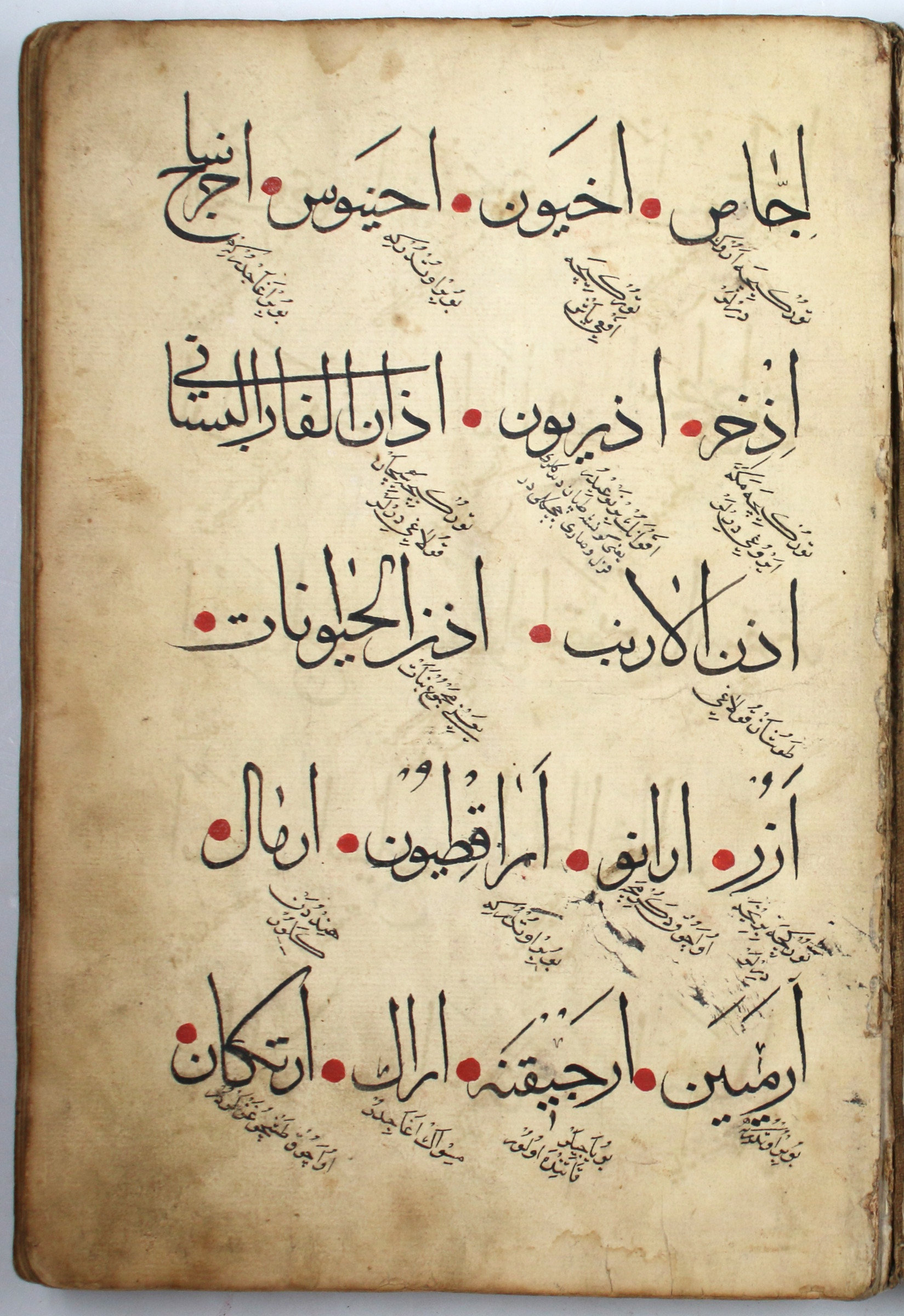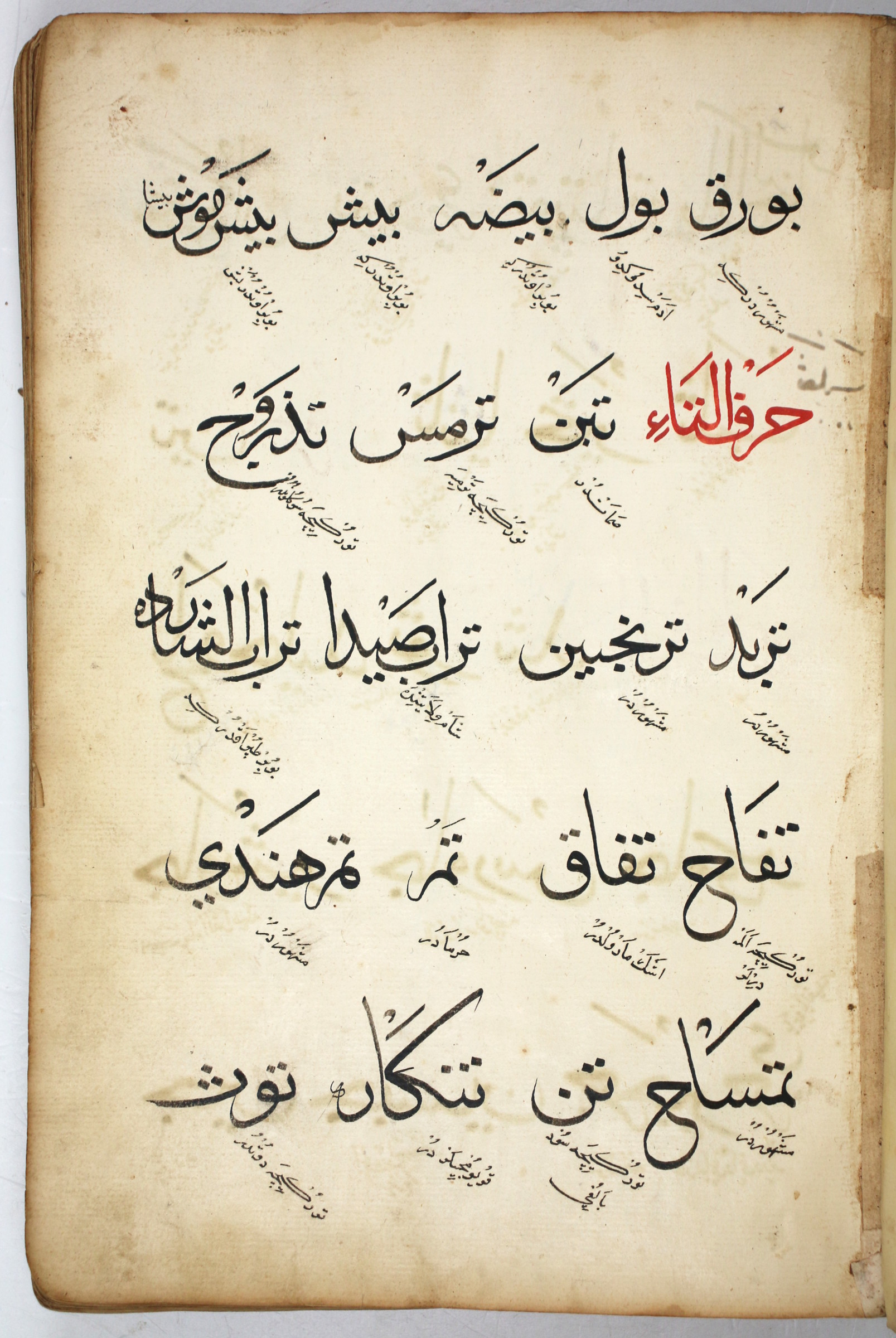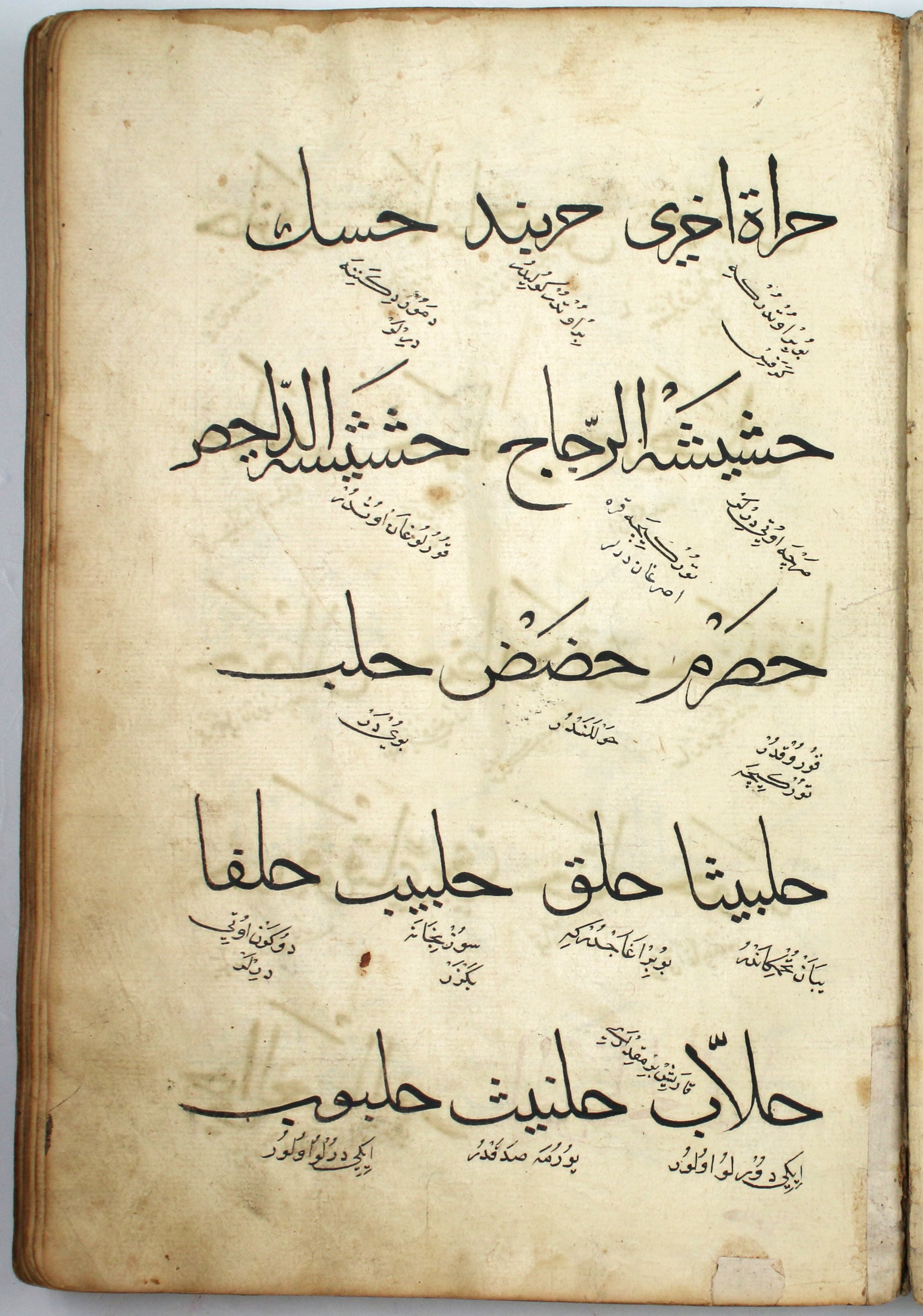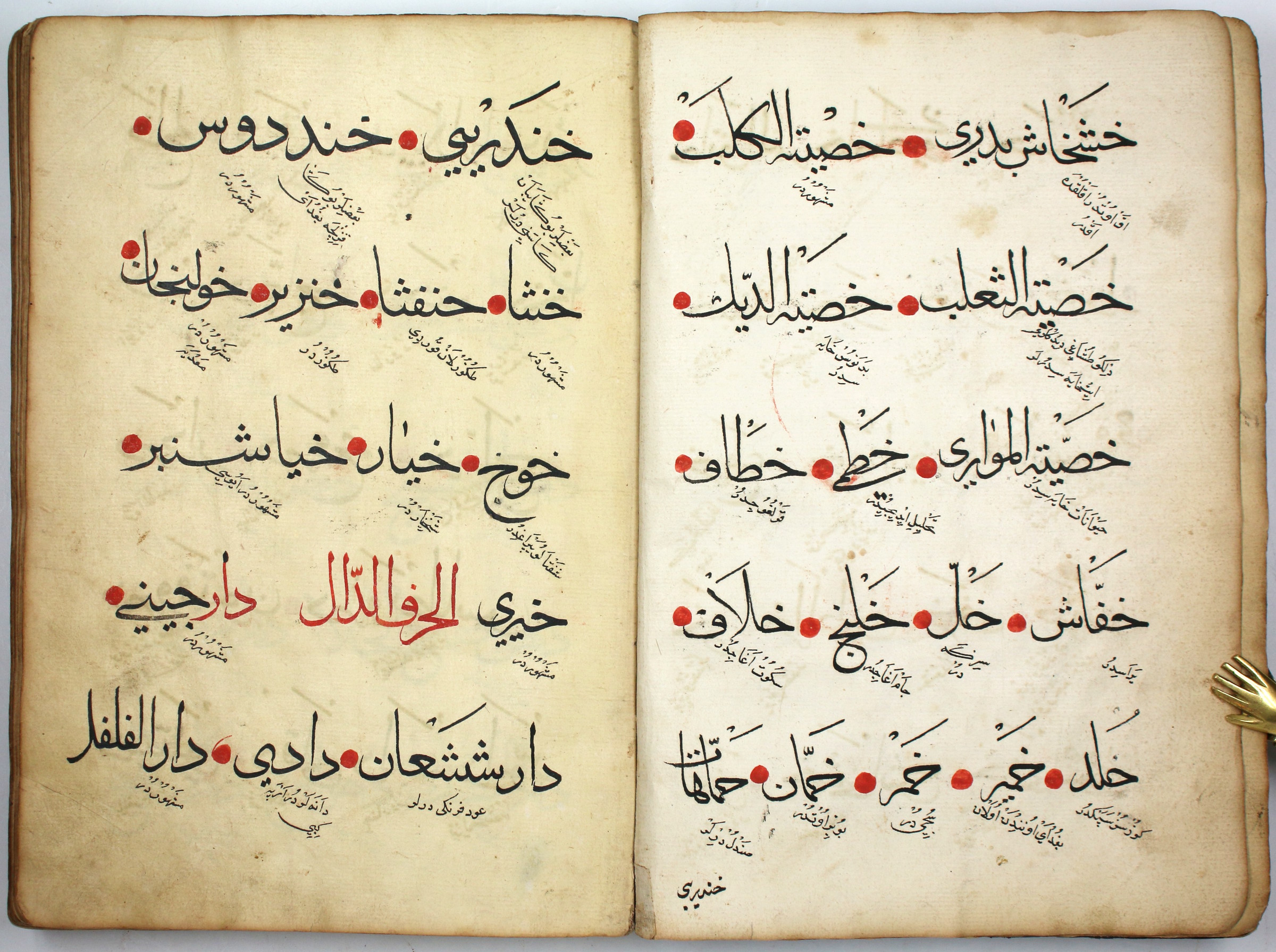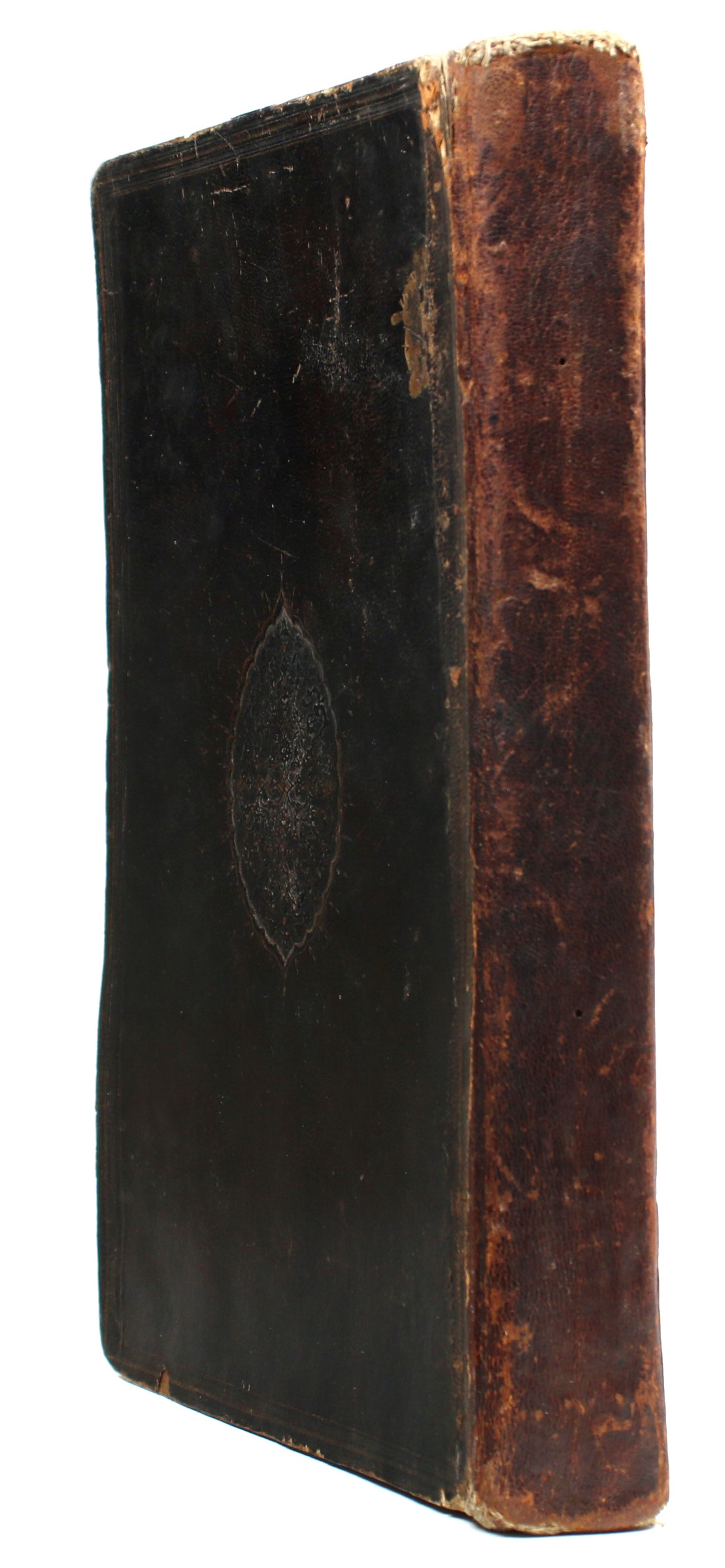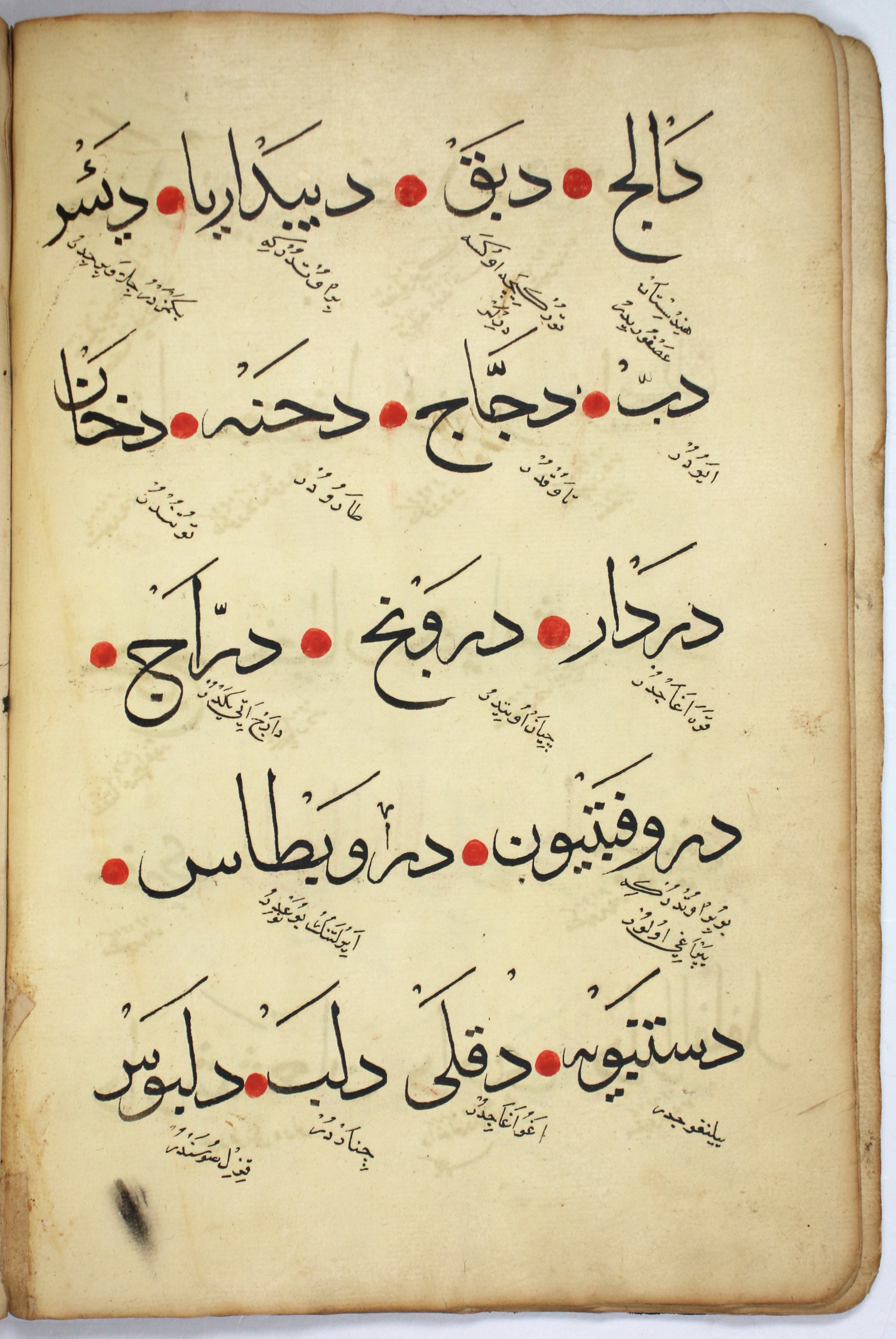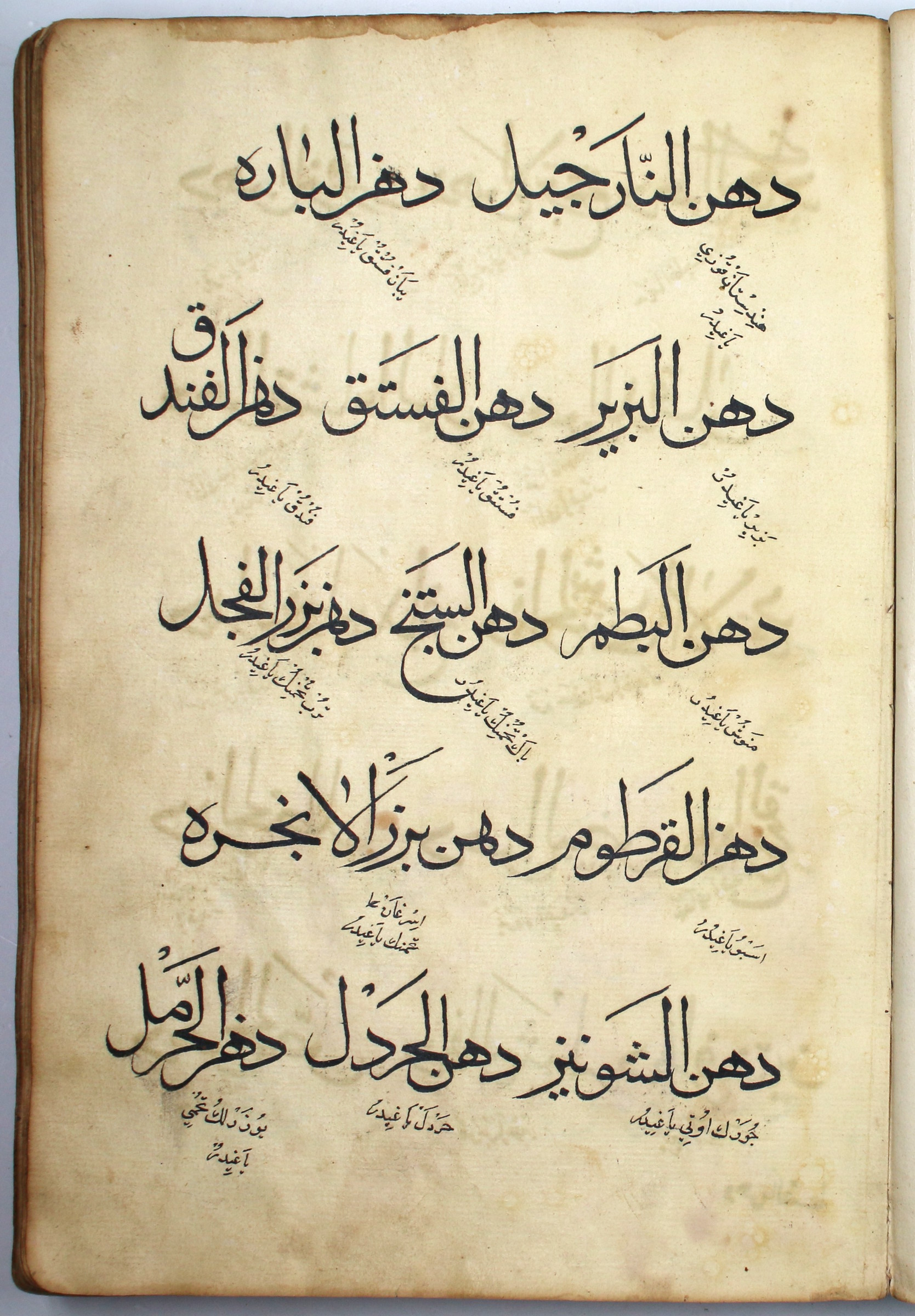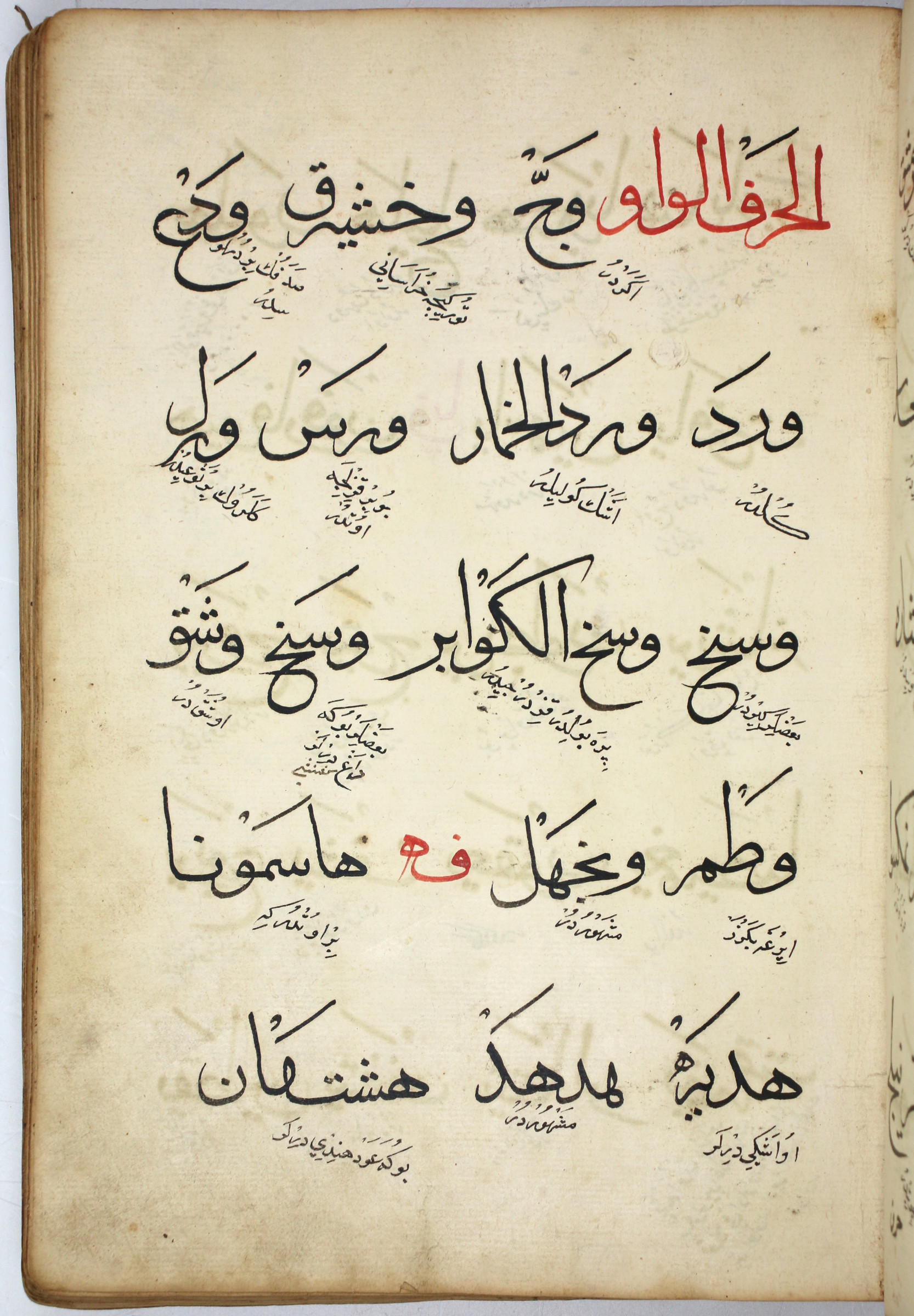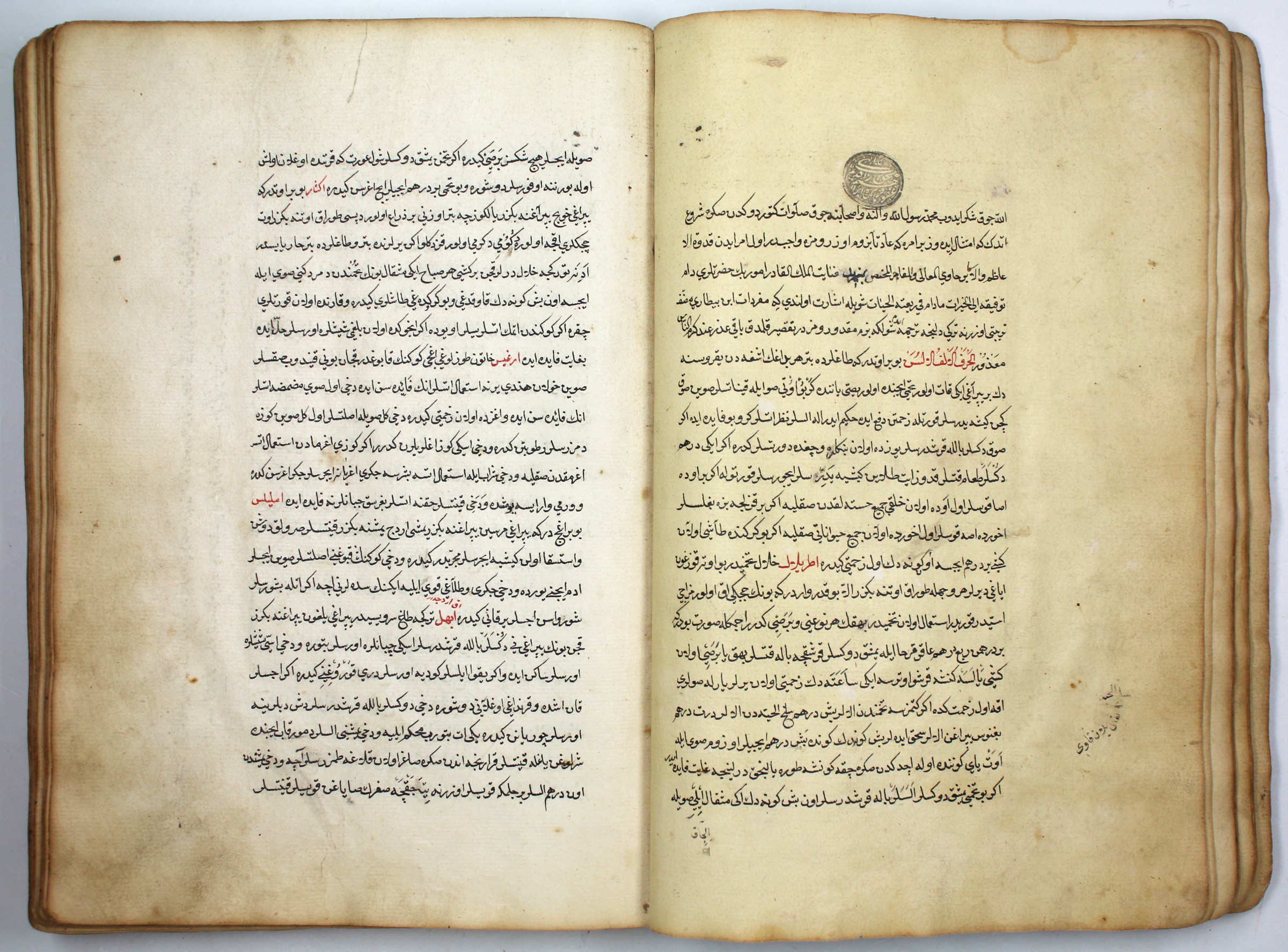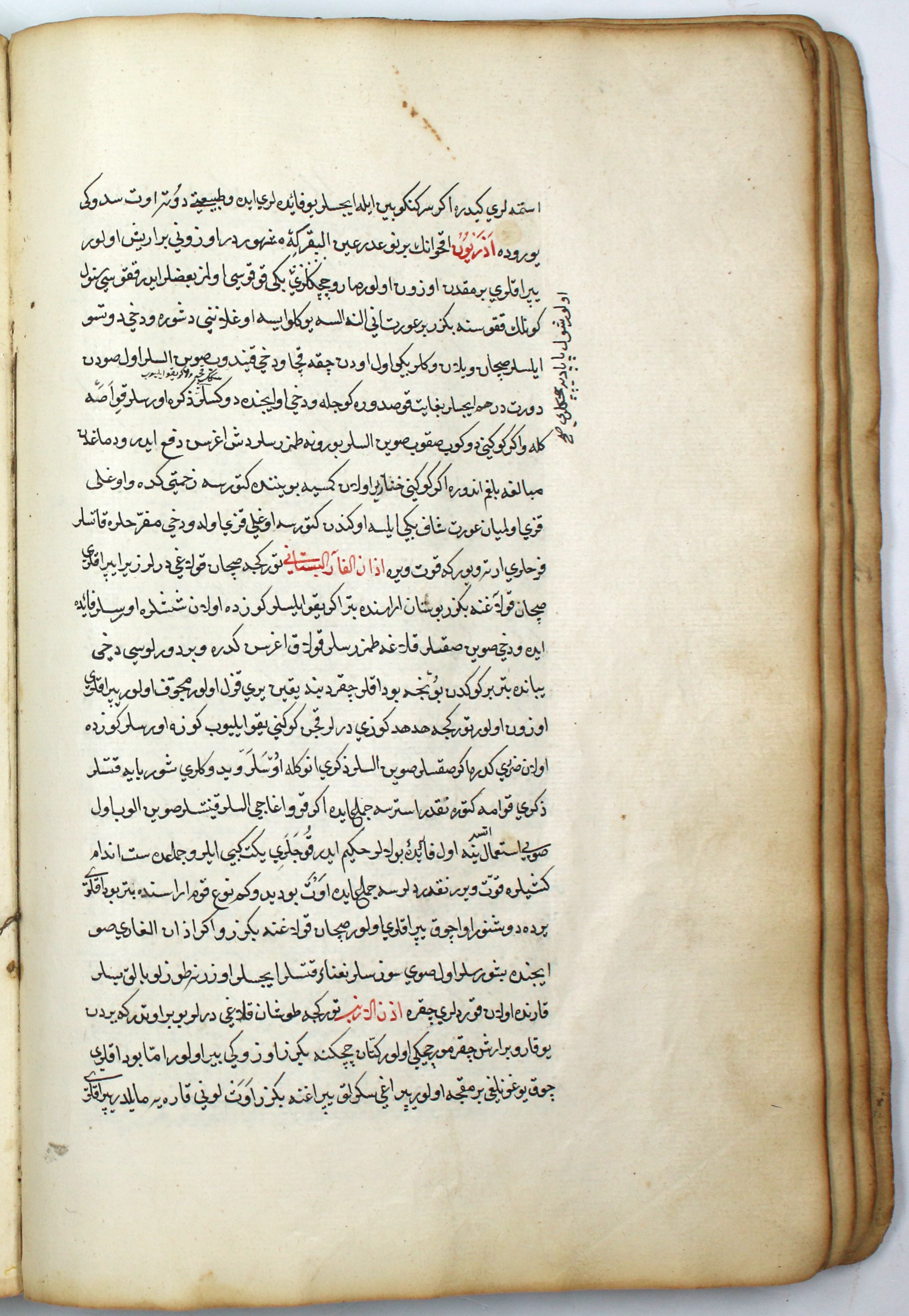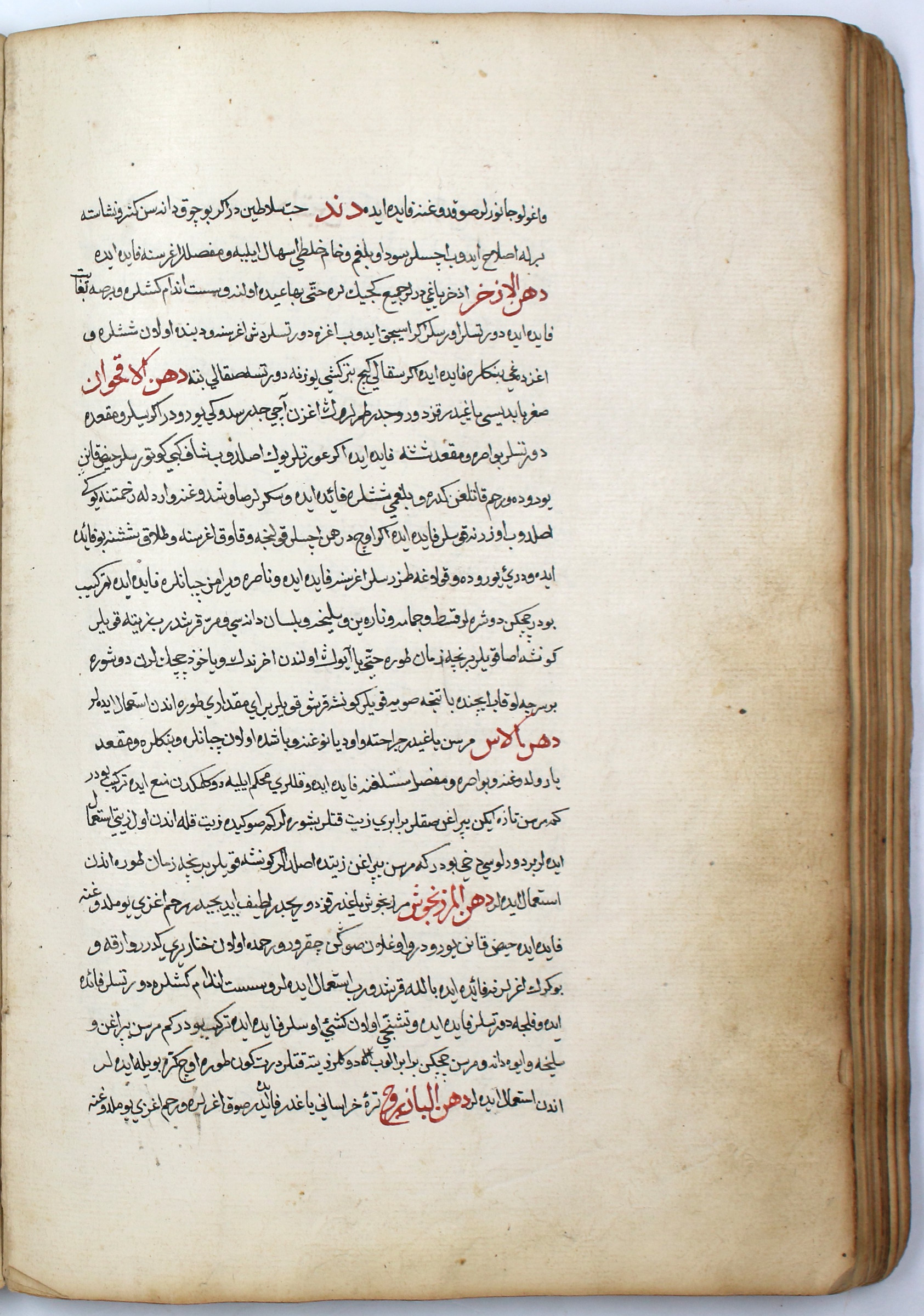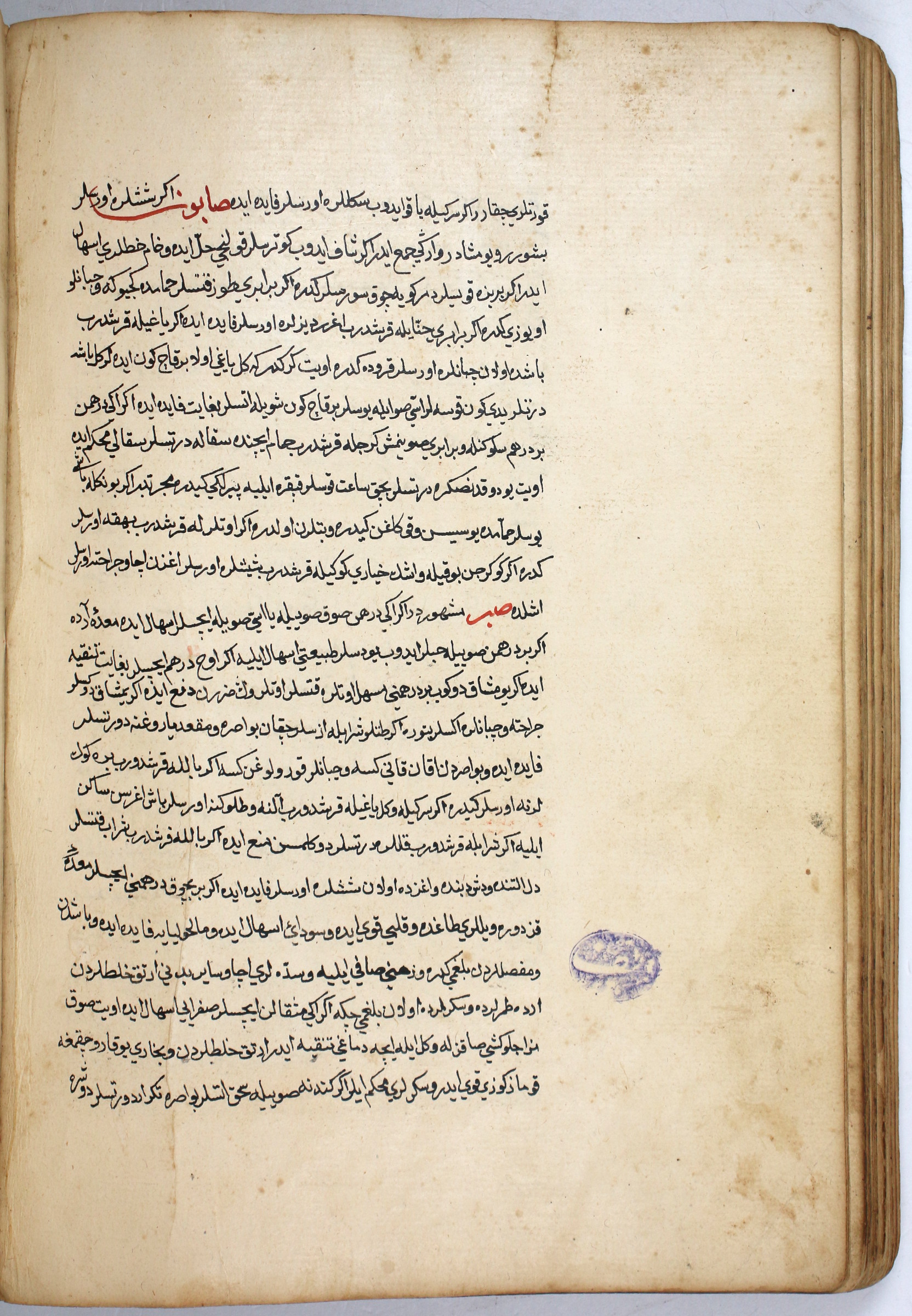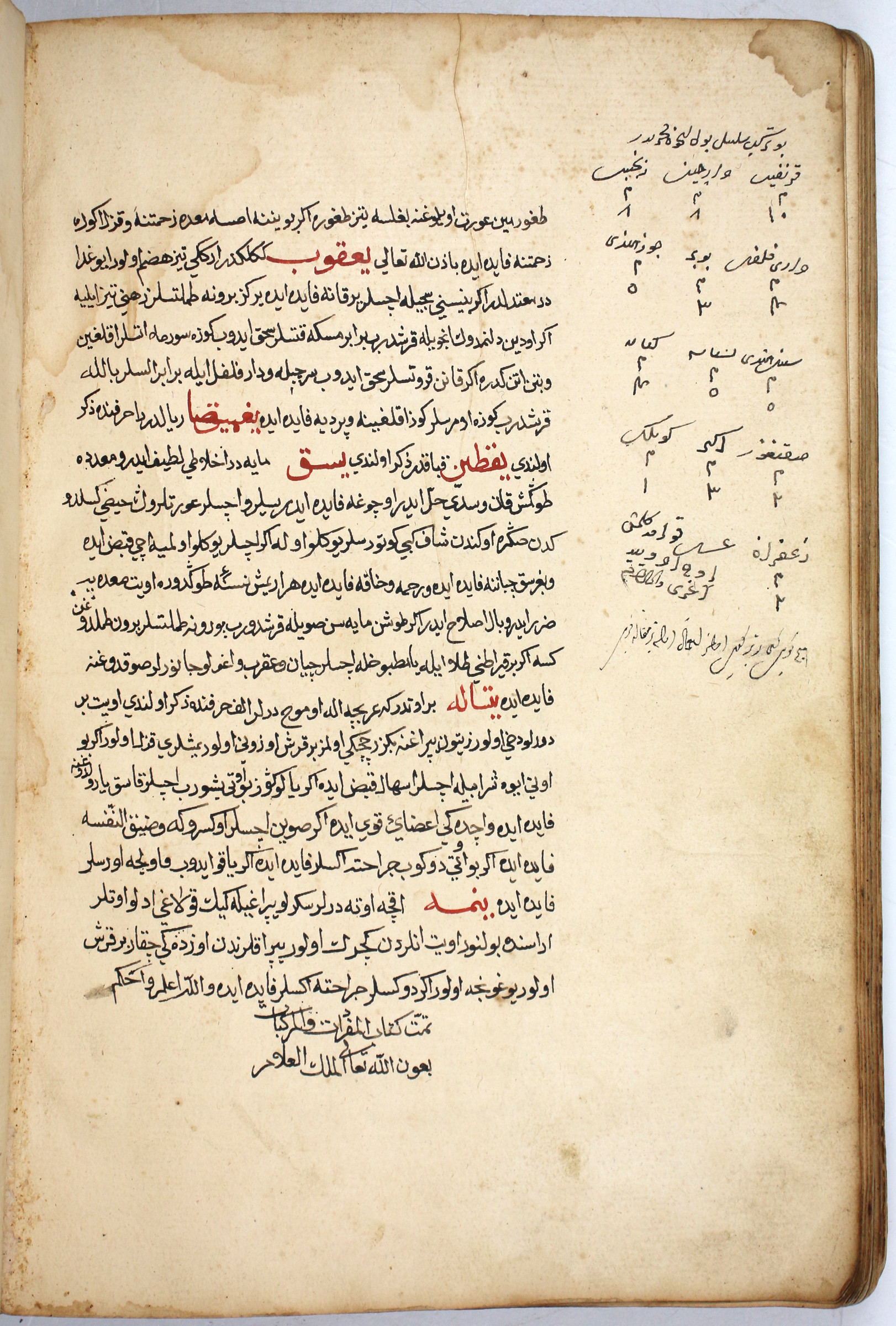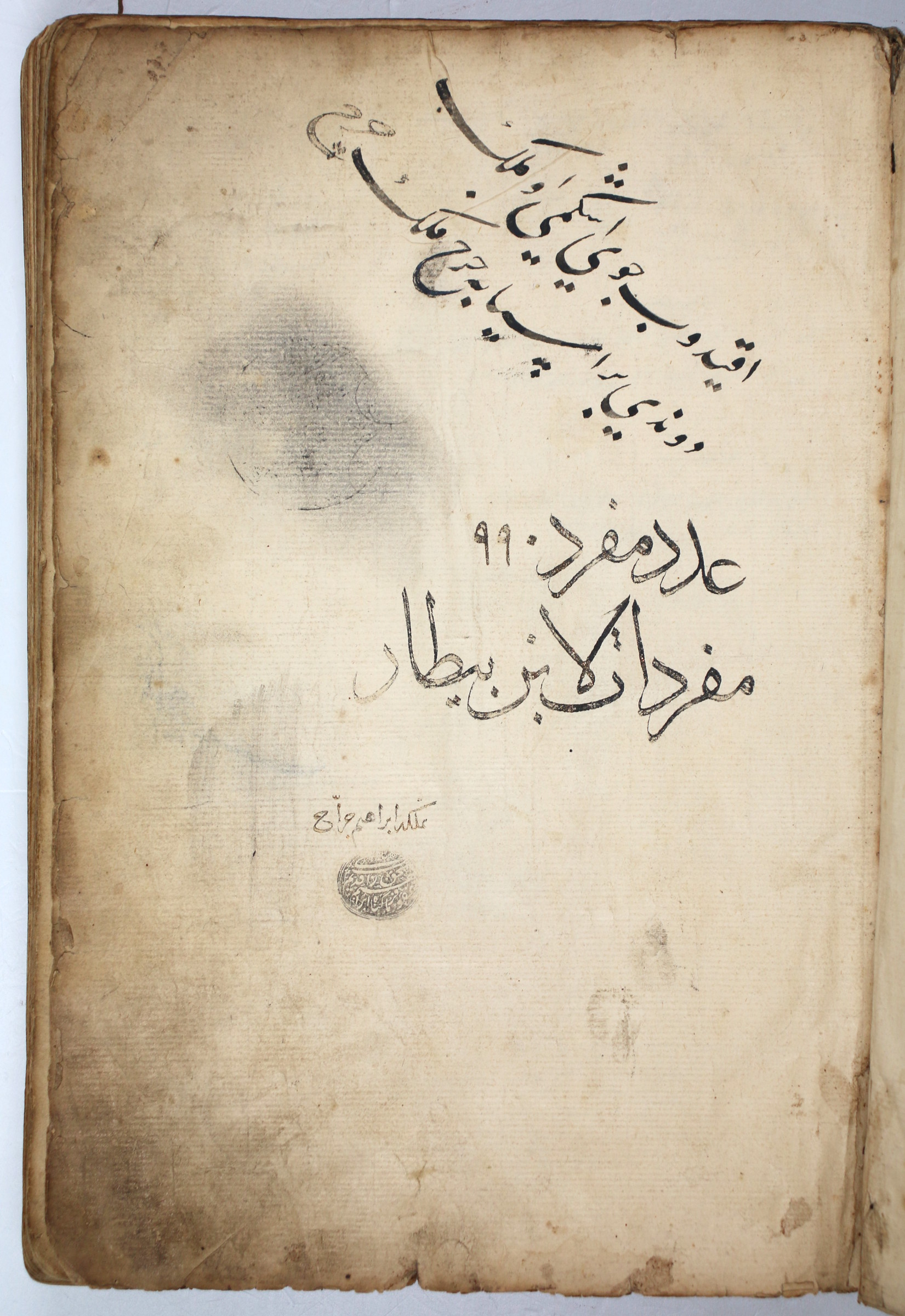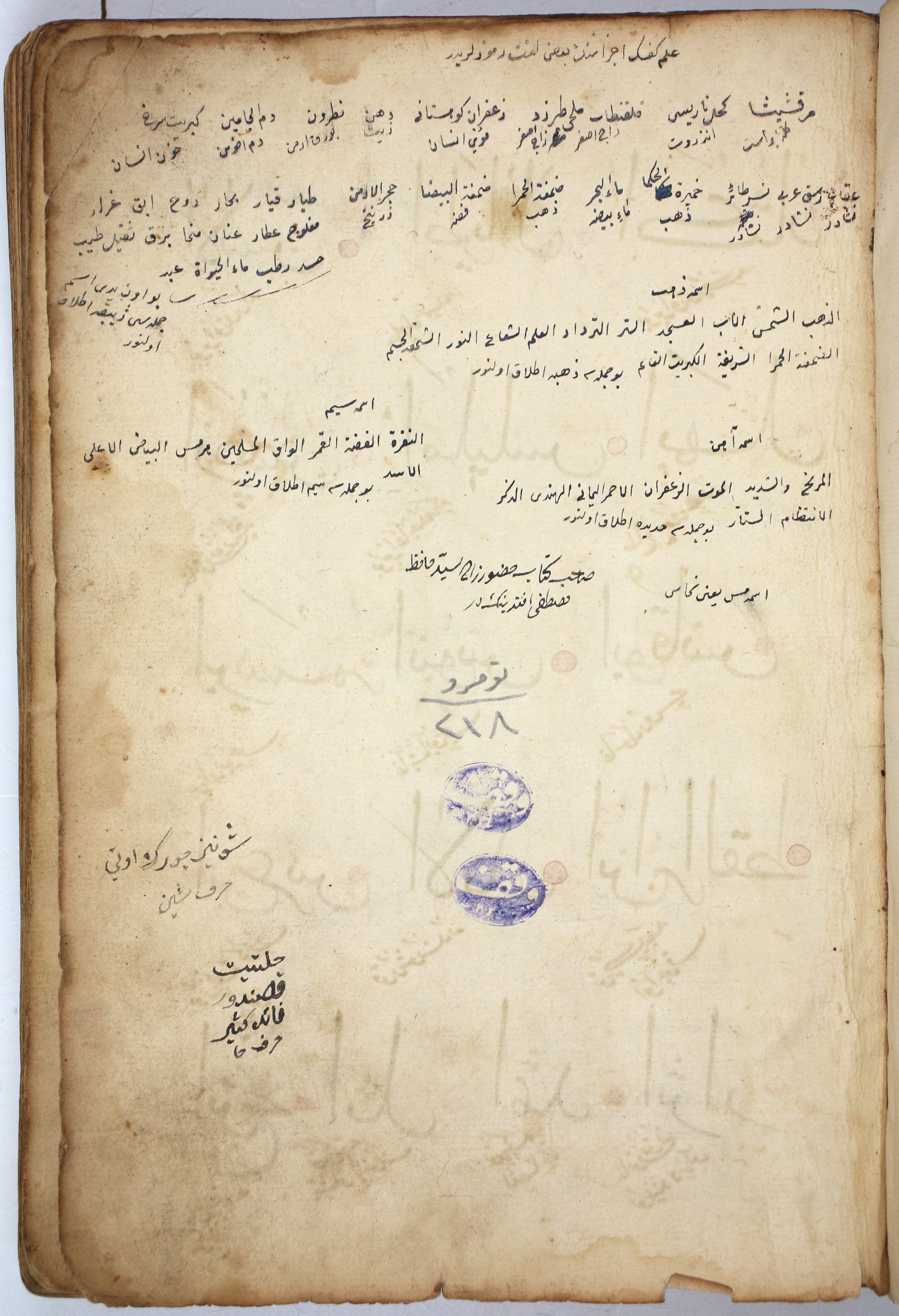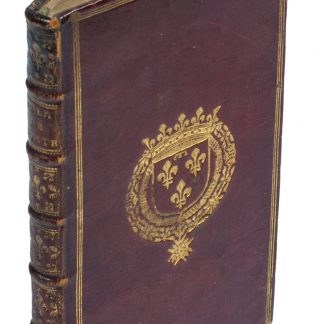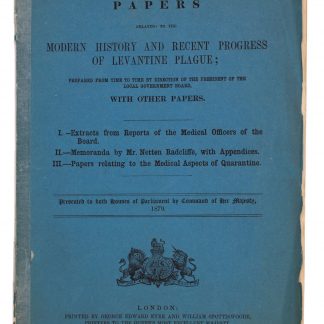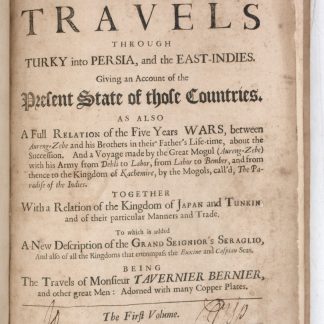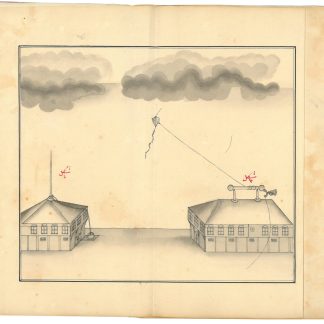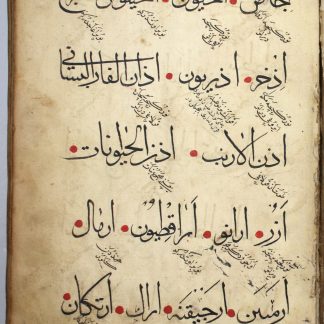Kitab-i ibn-i baytar al-mufradat [Compendium on Simple Medicines and Foods].
Folio (205 x 300 mm). 176 ff. Arabic and Ottoman Turkish manuscript on watermarked Ottoman paper, with names of herbs picked out in red. One watermark unrecorded, the second Heawood 1, dated to Venice, 1609. 18th century full leather.
€ 45,000.00
The scarce Ottoman Turkish translation of a medical treatise by the famous Andalusian botanical scholar Ibn al-Baytar (d. 1248 CE). This, his most influential work, was translated into Ottoman Turkish a little over a century after al-Baytar's death, and this manuscript is based on that first translation (as opposed to a later translation, made in 1681). Though the Arabic original is a popular and well-attested text, only 16 Ottoman Turkish manuscripts of "al-Mufradat" are known in institutions, and no Ottoman Turkish translations of "al-Mufradat" appear in auction records.
Additionally, unlike many (and perhaps all) similar Ottoman Turkish manuscripts, the present work includes a beautifully presented glossary of Arabic botanical terms glossed in Ottoman Turkish. The Arabic is written in large, bold calligraphy, and each term correlates to a botanical term - picked out in red ink - in the main text. Even the pages themselves are lightly perfumed, perhaps with the very recipe for rosewater dictated by al-Baytar in the 13th century.
Ibn al-Baytar's "al-Mufradat" includes more scientific knowledge than recipes for rosewater alone, though his recipes for essential oils are thorough, and give a fascinating insight into the apothecaries of the medieval and early modern Muslim world. Born in Malaga, al-Baytar was, as his name suggests, the son of a veterinarian who received a thorough education in the natural and religious sciences. He studied in Seville and then struck out to travel the Mediterranean, collecting samples and treatments as he went. There is some scholarly debate over the exact path of al-Baytar's travels, but he certainly travelled through North Africa and Anatolia (likely of interest to his later Ottoman readers), and is one of the rare authors from either the Christian or the Muslim Middle Ages to have travelled to three continents in pursuit of botanical and medical research.
Almost never found outside Turkish institutions (copies are held, for example, by the National Library and Topkapi Palace), this Ottoman Turkish translation provides a fascinating glimpse into the multicultural, multilingual Muslim medical manuscript tradition.
With the ownership inscription of Mustafa Effendi, and an ownership inscription and two stamps of a surgeon named Ibrahim Cerrah. Also with two waqf stamps, indicating that the manuscript was at one time donated to an institution.
Light exterior wear; marginal soiling and paper repairs; very subtly perfumed. A lovely copy in good condition.
For the Arabic manuscript tradition and the author, see GAL I, 492 and S I, 897.

